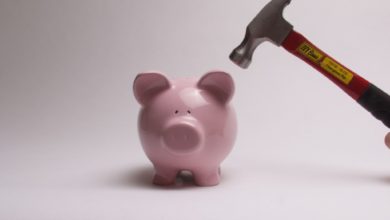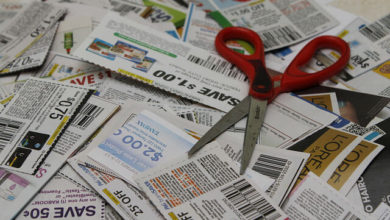Do You Know Where Your Money is Going Each Month?

You see the thing about effective financial management is first having a clear understanding of exactly where your money is going. Without having an honest and accurate account for where things are going, you cannot have an accurate budget of any kind. While it could be very true that you make just enough money to pay your bills each pay cycle, chances are you’re doing some excessive spending in places that you can cut back and save money. If you’ve never truly tracked your expenses in the past, here are a few ways you can start.
Write Down Recurring Expenses
The first thing you want to consider is jotting down your recurring expenses. These are costs that accumulate on the monthly basis. This could include expenses like your mortgage or rent, cell phone bill, utility bills, insurance costs, and so on. Get a real idea of how much it costs you to pay for expenses such as these. Keep in mind that some of these bills may be the same amount each month, while other bills may fluctuate. For fluctuating costs, it is beneficial to consider factoring the highest costs you’ve ever paid for the bill and making that the number you work with. It’s always best to budget more money for an expense than less money.
Write Down Your Debts
What is the total amount of debt you pay on the monthly basis? Do you have credit card payments, student loans, personal loans, car payments, etc? All of this will need to be recorded as well. Gather all your statements and get a total of how much you’re paying towards debt each month.
Check Your Receipts
Now for things that you pay for each month but don’t necessarily have a recurring bill you want to track differently. This might include your gas, groceries, and entertainment costs. The best way to track this going forward would be to keep all of your receipts so that you can tally them up to get a clear idea of what you’re spending. This is generally the area where you find you’re doing most of the unnecessary or excessive spending. Therefore, be as accurate and honest as possible. You can also check bank statements or credit card statements if you don’t pay with cash to see how much you spend.
The Grand Total
Now that you have effectively written down all of your expenses and kept track of your spending for the past month you can add all of your totals up to get a grand total. Don’t be alarmed, but this number might make you clutch your pearls. Sometimes we don’t realize how much it costs for us to live and enjoy life on the regular basis until we see up close and personal how much we spend each month. Using that grand total, you can then compare it to the amount of income you have coming in each month. If your income barely meets or doesn’t cover your monthly expenses, you’re going to need to do yourself a favor and cut back on your spending.
Cutting Back
Cutting back does not have to be as challenging as you might think, and it doesn’t mean that you can’t still live a happy lifestyle. It just means that you need to find ways to stretch your cash a bit further. Below are a few ways you can cut back on each of the categories described above.
Recurring expenses – You might think there isn’t much that you can do to cut back on those recurring expenses like your mortgage costs or utility bills such as your water and electric bill, but there is actually a great deal you can do. For instance, the Alberta Energy Providers website discusses how parts of Canada now allow consumers to choose their own energy providers, which could save you additional money. Other ways to save might include refinancing your mortgage, or calling your homeowner’ insurance company to determine ways to get additional savings each month.
Debts – The best way to save in this category would be to double down as much as you can and pay of the debts timely. By paying down your debts timely, you can eliminate any late fees or additional interest charges. However, once the debt is repaid, you also have the extra money to add to your budget.
Other Spending –Maybe you should use coupons when shopping at the grocery store, buy in bulk, or build a stockpile to bring down grocery costs. As for entertainment you can go out less often, look for coupons or discounts on things you like to do, or even find free things to do so you can keep the money in your pocket. This category is likely more about learning how to control yourself with money and spending than anything.
All in all, this might seem like a long and drawn out process to effective financial management but it is a necessary step. Without truly having an understanding of where your money is going you will continue to haphazardly spend money. As it would be nice to actually have money left over to save, invest, or treat yourself, the best way to do this is to be fully aware of your poor spending habits and make necessary changes.





Yes. It is because I monitor my expenses and use a spreadsheet to log the cost and what the cost is for. Making a graph is also helpful because I can see my improvement in every month.
I am definitely getting better at tracking my expenses. Cutting out the unnecessary bills really helps make each paycheck last longer.